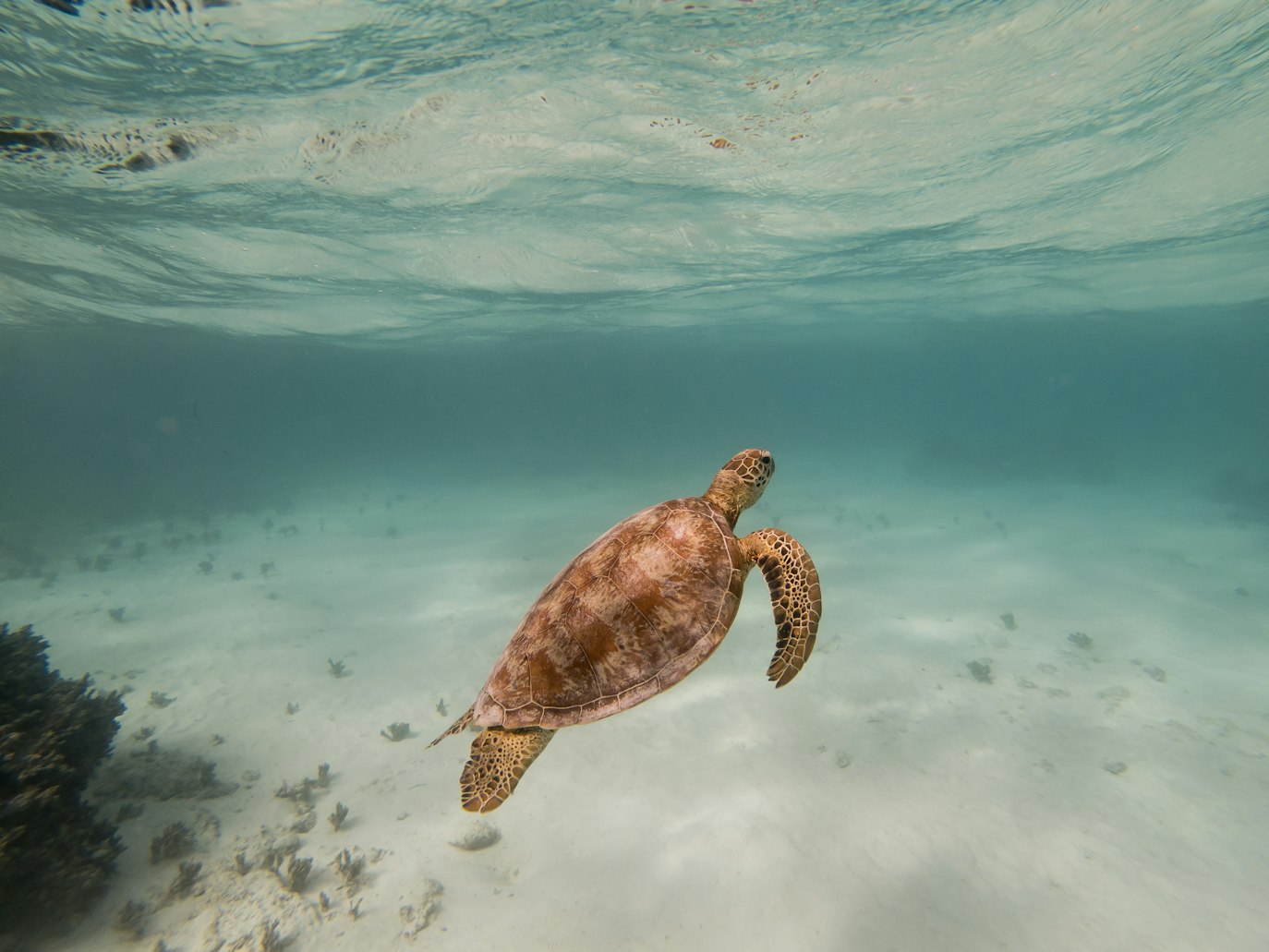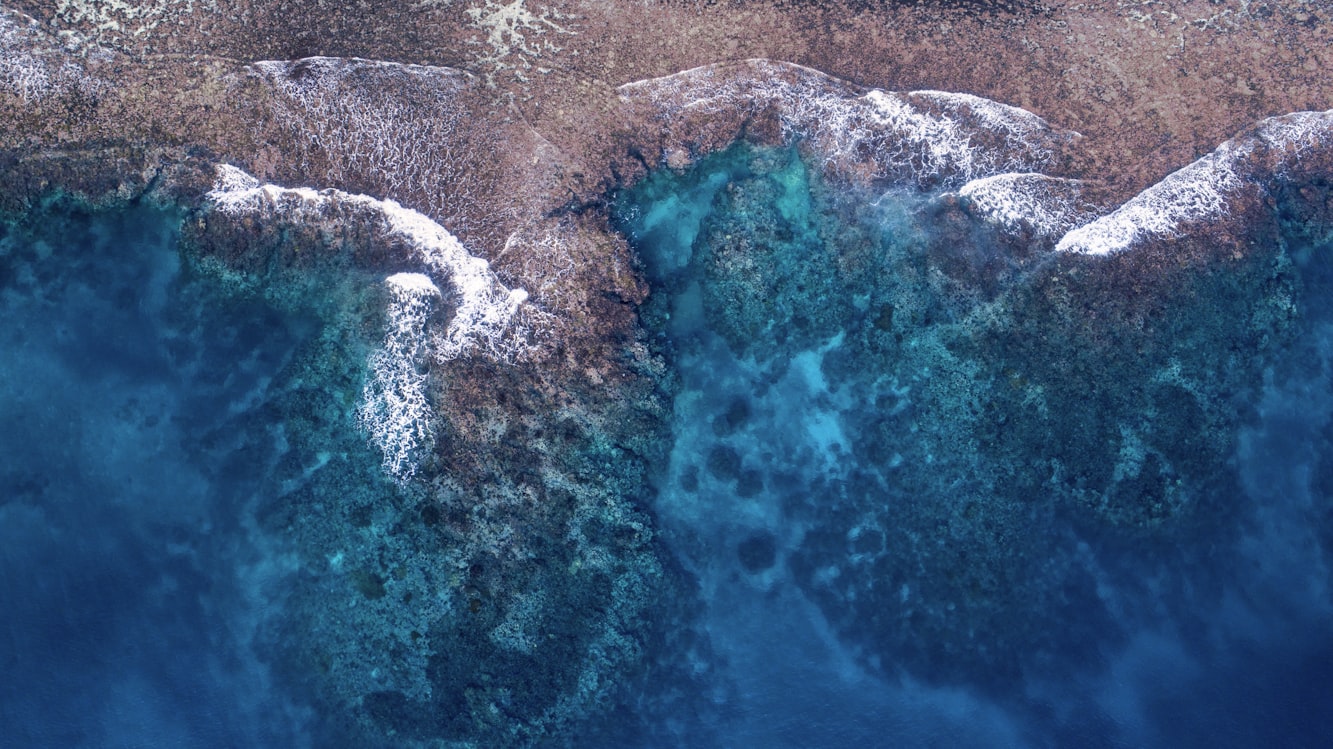Top Attractions
Vanuatu offers a dazzling variety of attractions that reflect its volcanic landscapes, lush rainforests, and rich Melanesian culture. One of the most iconic experiences is visiting Mount Yasur on Tanna Island, one of the world’s most accessible active volcanoes, where travelers can stand on the crater’s edge and witness fiery eruptions against the night sky. The island of Espiritu Santo is home to the Blue Holes—serene freshwater pools fed by underground springs that glow with a surreal turquoise hue. Divers from around the world are drawn to the SS President Coolidge wreck, a massive sunken ship lying just offshore, which now teems with marine life and coral. The capital, Port Vila, offers cultural immersion at the Vanuatu Cultural Centre and natural beauty at the Mele Cascades, a series of waterfalls nestled in the jungle.
Local Dishes
Vanuatu’s cuisine is rooted in island traditions and fresh ingredients, combining seafood, tropical fruits, and root vegetables. One of the signature dishes is laplap, a national favorite made from grated taro or yam mixed with coconut cream and meats like chicken or pork, wrapped in banana leaves and baked in an earth oven. Tuluk, another traditional snack, consists of pounded manioc filled with meat and wrapped in banana leaves. For seafood lovers, freshly caught lobster, reef fish, and coconut crab are served grilled or in rich coconut-based sauces. Visitors should also try simboro, a dish of taro leaves filled with vegetables and steamed in coconut milk. Meals are often accompanied by fresh fruits like papaya, pineapple, and breadfruit, and the local beverage kava offers a culturally significant, calming experience shared in traditional ceremonies.
Transportation Tips
Getting around Vanuatu requires some advance planning due to its archipelagic geography. Flights are the primary means of travel between the major islands, with Air Vanuatu offering domestic services from Port Vila to Tanna, Espiritu Santo, and other destinations. Within cities and towns, minibuses marked with a “B” are the most common form of public transport; they operate without fixed routes and can be hailed from the roadside. Taxis are also available but do not use meters, so fares should be negotiated in advance. Renting a car in Port Vila or Luganville is possible and useful for exploring at your own pace. For inter-island travel, ferries and cargo ships operate irregularly and are better suited for those with flexible schedules.
Budget Travel Tips
Travelers on a tight budget can explore Vanuatu affordably by choosing locally run guesthouses and bungalows rather than international resorts. Meals at market stalls and local eateries are inexpensive and delicious, especially near Port Vila’s central market. While domestic flights can be pricey, booking in advance or choosing less popular times may reduce costs. Participating in village tours directly supports local communities and is often more cost-effective than commercial tours. For those staying longer, traveling between islands by cargo ship can offer both adventure and savings, albeit with less comfort and reliability. Bargaining is not a common practice, so travelers should respect listed prices, but discounts can occasionally be negotiated for multi-night stays.
Safety Info
Vanuatu is generally safe for travelers, with a low crime rate and a welcoming local population. Petty theft can occur, particularly in Port Vila, so valuables should be kept secure and not left unattended. Tap water is safe to drink in the capital but may not be reliable on outer islands, so bottled or filtered water is recommended. Mosquito-borne illnesses such as dengue fever and Zika virus are present, making insect repellent and protective clothing essential. The active volcanoes pose natural risks, so travelers should always follow the guidance of local authorities when visiting them. Road conditions vary widely, and caution is advised when driving, especially on rural or unsealed roads.
Cultural Etiquette
Vanuatu’s culture is shaped by deeply rooted traditions, respect for community elders, and a strong sense of hospitality. Visitors should always greet locals politely and dress modestly when outside of beach areas. It is considered respectful to ask permission before taking photos of people or participating in village activities. When invited to a meal or a gathering, bringing a small gift or offering is appreciated. Kava ceremonies are significant social rituals, and participating with reverence is encouraged. Public displays of affection are frowned upon in rural areas, and Sunday is observed as a day of rest, with many businesses closed and quiet behavior expected.
Travel Style Fit
Vanuatu is a dream destination for travelers seeking raw nature, cultural depth, and off-the-beaten-path adventures. It appeals strongly to eco-tourists, scuba divers, and backpackers who value authenticity over luxury and are eager to interact with local communities. Couples and honeymooners looking for a romantic escape with private beaches and secluded resorts will also find their niche, especially on outer islands. While Vanuatu may not offer a highly polished experience in the way of some mass-market tourist destinations, it makes up for it with warmth, wonder, and the thrill of discovery. Whether you’re trekking through volcanic ash, paddling through rainforest rivers, or sharing stories with a village chief, Vanuatu offers a travel experience that is both humbling and unforgettable.

Best Time to Visit
The best time to visit Vanuatu is during the dry season, which runs from May to October. During these months, the weather is generally sunny, less humid, and ideal for outdoor activities like hiking, diving, and volcano viewing. This period also aligns with several cultural festivals and public holidays, including Independence Day celebrations in July. The wet season, from November to April, brings higher humidity, heavy rains, and the possibility of cyclones. Although prices may be lower during this time, travel disruptions are more likely.
Accommodation Recommendations
Budget travelers can find excellent value in locally owned guesthouses and beachfront bungalows, such as Tanna Evergreen Resort on Tanna Island, which offers basic but clean rooms with spectacular views of the sea and volcano. In Port Vila, options like Bluepango Motel provide affordable, no-frills accommodation with access to a quiet beach and kitchen facilities, ideal for independent travelers.
Mid-range travelers seeking comfort and character can choose accommodations like The Melanesian Port Vila, which features spacious rooms, an on-site restaurant, and cultural performances in the evenings. Another great option is Deco Stop Lodge in Luganville, known for its relaxed atmosphere, infinity pool, and attentive service.
Luxury travelers will find indulgent options like Iririki Island Resort, set on its own private island with overwater bungalows, fine dining, and spa services. On Espiritu Santo, Ratua Island Resort & Spa offers a luxurious eco-lodge experience with restored Indonesian villas, private beaches, and sustainable practices woven into every aspect of the stay.
Languages Spoken
Vanuatu is one of the most linguistically diverse countries in the world, with over 100 indigenous languages spoken across its islands. The official languages are Bislama, English, and French. Bislama, a creole language, serves as the most widely spoken lingua franca and is used in everyday conversation. English and French are used in education and government, with English more prevalent in tourism settings. Learning a few words in Bislama, such as “tank yu tumas” (thank you very much), can greatly enhance interactions with locals.
Currency
The currency of Vanuatu is the Vanuatu Vatu (VUV). Credit cards are widely accepted in major hotels and some restaurants in Port Vila and Luganville, but cash is essential for shopping at markets, paying for local transport, or traveling to outer islands. Currency exchange is available at banks and exchange bureaus in Port Vila, and ATMs are present in urban centers but rare elsewhere. Travelers are advised to carry sufficient cash when visiting more remote areas.
Common Traveler Mistakes to Avoid
One common mistake travelers make in Vanuatu is underestimating the distances and travel times between islands, often assuming inter-island travel is simple when in fact it requires planning and patience. Another frequent oversight is neglecting to bring sufficient cash when visiting rural areas, as many places do not accept cards and there may be no ATMs nearby. Some visitors also forget to bring insect repellent or proper travel insurance, which is critical when venturing to more remote locations or engaging in adventure activities like diving and volcano trekking. Lastly, assuming that everyone speaks English can lead to miscommunication; learning a bit of Bislama can make a big difference in respectful interactions.
Essential Apps & Tools
Travelers in Vanuatu will benefit from a few useful apps and tools. Offline maps from apps like Maps.me or Google Maps (with downloaded areas) are essential due to limited cellular service on some islands. Currency converters like XE Currency make budgeting easier when dealing with Vatu. Language apps with Bislama phrases or simple travel dictionaries can facilitate communication. For those planning diving or volcano hikes, weather apps such as Windy or AccuWeather help monitor conditions. Kava Map is a community-driven app that sometimes includes locations of nakamals (kava bars) in Port Vila. Additionally, WhatsApp is the preferred messaging app among many locals and operators.
Suggested Itinerary Styles
For a week-long trip, a well-balanced itinerary might start with two days in Port Vila to explore local markets, waterfalls, and nearby islands. The next two days could be spent on Tanna Island for an unforgettable visit to Mount Yasur and cultural village experiences. Following this, a transfer to Espiritu Santo allows for three days of diving, blue hole exploration, and relaxation on Champagne Beach. Those with more time might add a stay in Pentecost during land diving season or explore Malekula’s remote tribal areas. The itinerary should allow for downtime and be flexible due to the unpredictability of transport schedules.
Fun Facts
Vanuatu is home to the world’s only underwater post office, located off the coast of Hideaway Island near Port Vila, where visitors can snorkel down to mail waterproof postcards. The country has been ranked among the happiest places on Earth according to the Happy Planet Index, due to its strong community bonds and low environmental impact. Vanuatu is also one of the few places in the world where one can witness a land diving ritual—an ancient predecessor to bungee jumping—in which men leap from wooden towers with vines tied to their ankles as a rite of passage. Despite its small population, Vanuatu’s rich linguistic and cultural diversity is a testament to its complex heritage and island identity.
